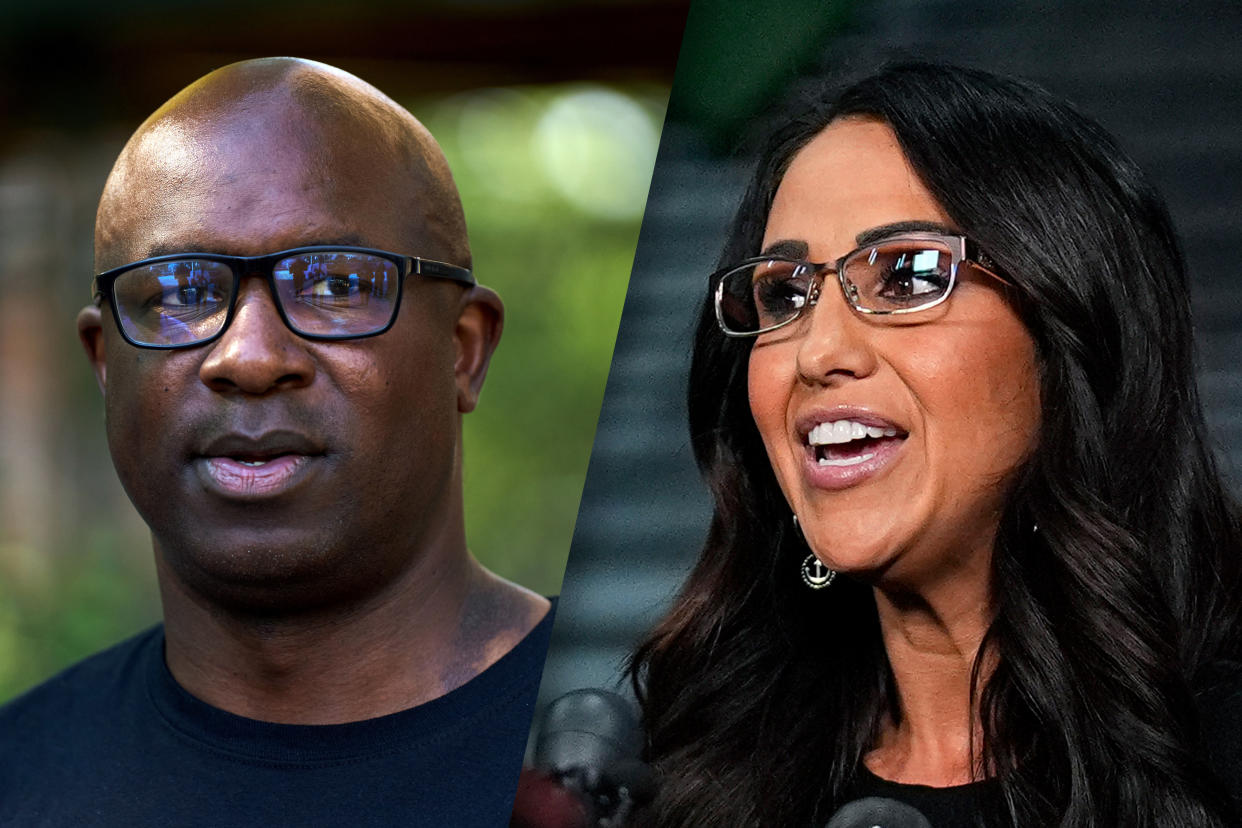Jamaal Bowman loses in New York, Lauren Boebert wins in Colorado and Utah 2024 primary results: What happened, what it means and what's next

Following a bitter, highly watched campaign, incumbent Rep. Jamaal Bowman was easily defeated by George Latimer, his centrist challenger, in Tuesday’s New York Democratic primary in a blow to the progressive wing of the party.
The election was one of several statewide primaries held Tuesday that had national implications.
Here is a brief guide to the results, what they mean and what happens next.
New York

What happened: Latimer defeated Bowman in the race to represent the state’s 16th Congressional District.
What it means: Bowman’s loss was a bitter blow to the party’s left leaders, including Sen. Bernie Sanders and Rep. Alexandria Ocasio-Cortez, who had rallied around him, and a boon to centrists who boosted Latimer, a Westchester County executive who was endorsed by Hillary Clinton — giving hope to other challengers of the so-called Squad.
But Bowman had plenty of baggage as a candidate. He was among the first prominent Democrats to call for an immediate ceasefire in Gaza, angering pro-Israel groups that poured millions of dollars into Latimer’s campaign. He was censured by the House for pulling a fire alarm during a vote last year. And he trafficked in 9/11 conspiracy theories in old blog posts that were unearthed in January.
What’s next: Latimer is widely expected to win the general election in November and will join more than a dozen other New York Democrats, including Ocasio-Cortez, in the U.S. House.
Colorado

What happened: Rep. Lauren Boebert, who decided to switch congressional districts following her near-loss to Democrat Adam Frisch in 2022, won the open seat in the state’s Fourth Congressional District for the seat that was vacated by Rep. Ken Buck, who retired in March. In the state’s Third Congressional District — the one Boebert abandoned — Jeff Hurd, an establishment Republican, defeated former state Rep. Ron Hanks, a Trump supporter who was at the Capitol on Jan. 6, 2021. And Greg Lopez, a former mayor of Parker, Colo., and an outspoken election denier, won the special election to finish the remainder of Buck’s term.
What it means: Boebert’s gambit appears to have worked. Lopez has already said he is not running in the fall, clearing her path for another term in Congress in a "safer" district that leans heavily Republican. Meanwhile, establishment Republicans scored a victory in vanquishing Hanks, who Colorado Democrats had tried to elevate because they viewed him as the weaker candidate.
What’s next: Hurd will likely take on Frisch, the presumptive Democratic nominee, in November.
Utah

What happened: In Utah, there were four key races to watch, including one that will likely decide the successor to retiring GOP Sen. Mitt Romney:
Gubernatorial: Republican Gov. Spencer Cox, an outspoken critic of former President Donald Trump, staved off a primary challenge by Phil Lyman, a right-wing election denier. Trump did not formally endorse Lyman.
Senate: Rep. John Curtis, an environmentalist and moderate conservative, defeated Trump-endorsed Riverton Mayor Trent Staggs and former state House Speaker Brad Wilson, a Trump backer, in the Republican primary for outgoing Sen. Mitt Romney’s seat in the U.S. Senate.
House: In Utah’s 2nd Congressional District, incumbent Rep. Celeste Maloy, who has been endorsed by Trump, is leading by just four points in a hotly contested primary over combat veteran Colby Jenkins, who is being backed by several prominent Trump supporters, including Vivek Ramaswamy and Sens. Rand Paul of Kentucky and Tommy Tuberville of Alabama. Per the Associated Press, the race remains too close to call as of Wednesday morning. And in the open race to represent Utah’s 3rd Congressional District, state Sen. Mike Kennedy, a Trump supporter who is skeptical of U.S. financial support for Ukraine, defeated Case Lawrence, a self-described “trampoline park entrepreneur.”
What it means: Since Democrats haven’t won a Senate seat in Utah since 1970, Curtis will be heavily favored to replace Romney, meaning the seat will stay Republican — and remain moderate.
What’s next: The winner of the Maloy-Jenkins primary will face Democrat Nathaniel Woodward in the November general election.


